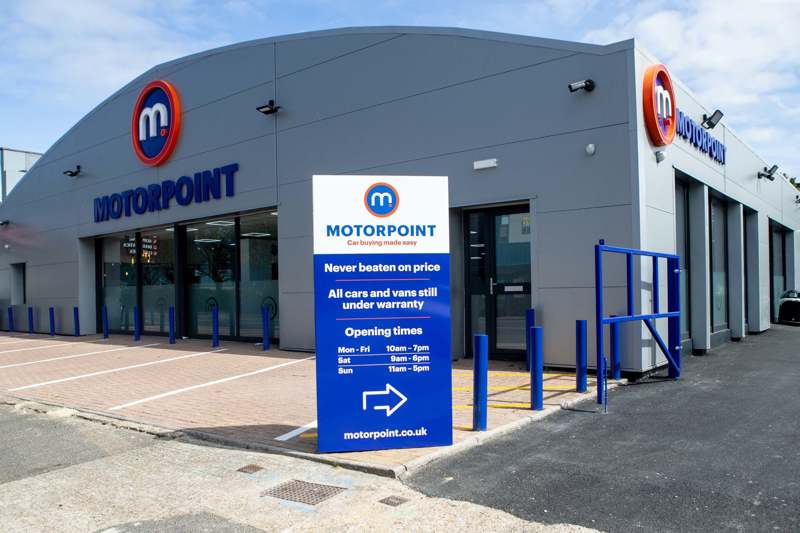Used car supermarket Motorpoint saw pre-tax losses grow to £10.4 million from £300,000 last time, with sales slumping by a quarter to £1.09 billion.
Reporting full-year results, Motorpoint CEO Mark Carpenter said annual losses for the year to March 31 had spiralled through the impact of a shortage of second-hand vehicles.
The acute shortage of used cars was also compounded by falling prices and lacklustre demand from car buyers facing higher interest rates.
Carpenter said: “The past financial year was the most difficult in our history, with multiple negative headwinds in the macro environment such as rising borrowing costs and subdued customer demand, coupled with industry-specific issues such as lower inventory and deflation.”
Having moved early to restructure, including reducing headcount by about 250 employees, the group said it had returned to profitability in the final three months of its financial year, while demand also recovered with retail sales by volume rebounding by 8.9%.
That recovery has continued into the new financial year with the business enjoying a “positive start”, with double-digit growth in retail sales by volume in April and May.
The group said it anticipated that the difficult macro conditions will continue to ease with customer sentiment improving.
Introduced £149 admin fee
Motorpoint has extended its ideal stock policy from 0-4 year-old cars to 0-5yr/50k ones to help fill its forecourts and offer lower priced vehicles for cash-strapped consumers.
In prioritising protecting profit and cashflow, it improved data analysis to to improve unit margins, introduced a customer fee of £149 for the administration of processing and handover of the car, and increased the fees charged by its Auctions4Cars A4C trade-to-trade remarketing business.
The company expects more improvements in the months ahead.
“Supply should increase following new car registration growth, and used car market expansion,” said Carpenter.
“The resilience of our cash generation evidences the strength of our business model and we now look forward to continuing our journey of profitable growth as the improving trends of Q4 have continued into Q1.”
 He said the business remained committed to long term growth, whilst focusing in the short term on margin improvement, cost base management and cash generation and measures that offer the best short term returns, adding that the group’s use of data would remain vital in fulfilling those objectives.
He said the business remained committed to long term growth, whilst focusing in the short term on margin improvement, cost base management and cash generation and measures that offer the best short term returns, adding that the group’s use of data would remain vital in fulfilling those objectives.
“As well as helping to inform vehicle pricing decisions, it supports the identification of what vehicles customers desire. As an example, it allowed us to identify that new customers are more likely to buy cheaper vehicles than returning ones, and this helped inform our decision to expand our retail criteria.”
He said that Motorpoint’s priorities for the year ahead include strengthening vehicle supply, pushing ahead with consumer digital engagement, using data to inform decision making and the introduction of new profit channels.
“We also expect to recommence our new store opening programme during FY25, now that we see the market returning.”
Motorpoint had been on a programme of expansion and had built a network of 20 used car dealerships across England, Wales and Scotland, but it paused any further expansion last autumn after posting huge losses at its half-year trading.
In a January update Motorpoint said it was now seling such cars for an average £14,750, whereas at the beginning of its financial year in April 2023 the average price of a vehicle sold by Motorpoint was £19,750.






